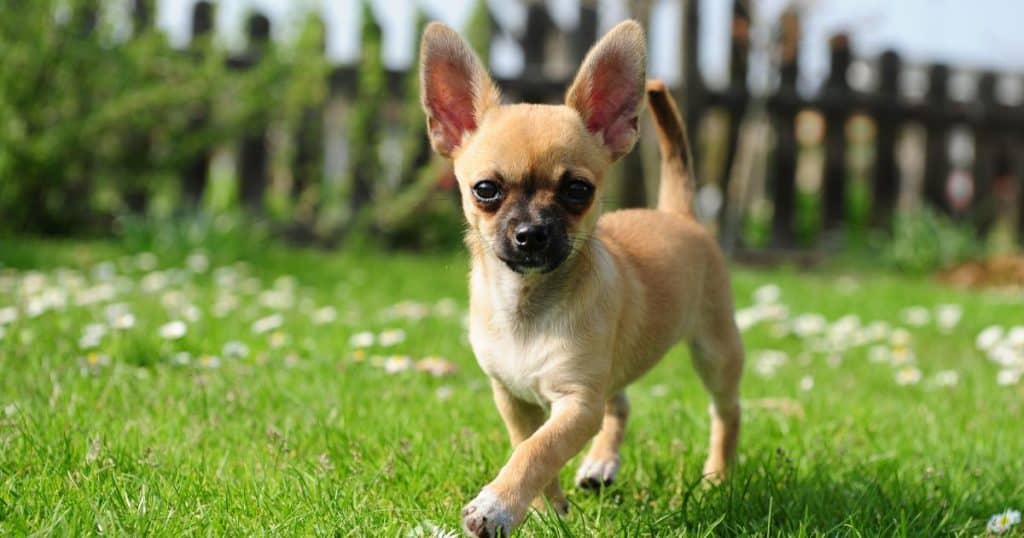What to Know
Chihuahuas are one of the most popular small dog breeds in the world, known for their spunky personalities and adorable looks. However, before adopting a Chihuahua, it’s important to understand their lifespan and the factors that can affect it.
In this article, we’ll explore everything you need to know about the lifespan of a Chihuahua, including average lifespan, common health issues, and tips for extending your furry friend’s life.
According to various sources, the average lifespan of a Chihuahua is between 12 to 20 years. However, there are several factors that can influence their lifespan, including genetics, diet, exercise, and overall health.
While some Chihuahuas may live well into their twenties, others may develop health issues that can significantly shorten their life expectancy.
Therefore, it’s important to provide your Chihuahua with proper care and attention to ensure they live a long and healthy life.
In this article, we’ll cover everything from the common health issues that Chihuahuas may face, to tips for extending their lifespan.
Whether you’re a new Chihuahua owner or a seasoned one, this article will provide you with valuable insights into the lifespan of this popular breed.
So, let’s dive in and learn more about how to keep your furry friend happy and healthy for years to come!
Average Lifespan of a Chihuahua

Chihuahuas are known for their long lifespan, with healthy adult Chihuahuas living an average of 15 to 20 years. However, there are several factors that can affect their lifespan, including genetics, diet, exercise, and overall health.
Factors Affecting Lifespan
Genetics
Genetics play a significant role in determining a Chihuahua’s lifespan. Some Chihuahuas may be predisposed to certain health conditions, such as heart disease, which can shorten their lifespan.
Diet
A healthy diet is essential for a Chihuahua’s overall health and longevity. Feeding them a well-balanced diet that is rich in nutrients and vitamins can help prevent health problems and increase their lifespan.
Exercise
Regular exercise is crucial for a Chihuahua’s health and can help prevent obesity, which can lead to health problems and a shorter lifespan. Daily walks and playtime can help keep them active and healthy.
Overall Health
Regular veterinary check-ups and preventative care can help ensure a Chihuahua’s overall health and longevity. Early detection and treatment of health problems can help prevent them from becoming more serious and potentially life-threatening.
It’s important to note that while Chihuahuas are known for their long lifespan, they may still be prone to certain health problems, such as dental issues and respiratory problems. It’s important to provide them with proper care and attention to help them live a long and healthy life.
Origins and Characteristics

Chihuahuas are a small breed of dog that originated in Mexico. They are named after the state of Chihuahua in Mexico, where they were first discovered. These dogs are known for their tiny size, weighing only 1-3 kg and standing at a height of 8-23 cm. They have a short or long-haired coat, which can be any color except merle.
Chihuahuas are known for their big personalities, despite their small size. They are loyal, affectionate, and playful dogs, making them great companions for families and individuals alike.
They are also known for their high-pitched bark, which they use to alert their owners of any potential danger.
One interesting characteristic of Chihuahuas is their lifespan. While the average lifespan of a Chihuahua is 12-20 years, some Chihuahuas have been known to live up to 20 years or more.
This is due to their small size, which means they have fewer health issues than larger breeds. However, it’s important to note that Chihuahuas can still develop health problems such as dental issues, heart problems, and hypoglycemia.
Another characteristic of Chihuahuas is their intelligence. They are quick learners and can be trained to do a variety of tricks and tasks.
However, they can also be stubborn and independent, which can make training a challenge. It’s important to start training Chihuahuas at a young age to ensure they learn good habits and behaviors.
Common Health Issues

Chihuahuas are generally healthy dogs with a long lifespan, but like all breeds, they are prone to certain health issues. In this section, we will discuss some of the most common health problems that Chihuahuas may face.
Heart Problems
Chihuahuas are prone to heart problems, particularly mitral valve disease. This is a condition where the valve that separates the heart’s chambers doesn’t close properly, causing blood to flow backward. Symptoms of mitral valve disease include coughing, fatigue, and difficulty breathing. Treatment may include medication and lifestyle changes.
Dental Issues
Chihuahuas are also prone to dental issues, such as periodontal disease and tooth decay. These issues can cause pain, difficulty eating, and even lead to infections in other parts of the body. Regular dental check-ups and cleanings can help prevent these issues, as well as daily brushing and providing dental chews or toys.
Patellar Luxation
Patellar luxation is a condition where the kneecap dislocates from its normal position. This can cause pain and lameness in the affected leg. Mild cases may not require treatment, but severe cases may require surgery to correct the issue.
Tracheal Collapse
Tracheal collapse is a condition where the trachea, or windpipe, collapses or narrows, making it difficult for the dog to breathe. This can be caused by a congenital defect or by environmental factors such as obesity or exposure to irritants. Treatment may include medication, lifestyle changes, and in severe cases, surgery.
As a Chihuahua owner, it’s important to be aware of these common health issues and to take steps to prevent and treat them. Regular vet check-ups, a healthy diet, and exercise can go a long way in keeping your Chihuahua healthy and happy.
Diet and Exercise
Nutritional Requirements
Chihuahuas are a small breed, and their nutritional needs are different from larger dogs. They require a diet that is high in protein, fat, and calories, to help maintain their energy levels. It is important to choose a high-quality dog food that is specifically formulated for small breeds. Avoid feeding them table scraps or human food, as it can lead to obesity and other health problems.
Chihuahuas are prone to dental problems, so it is essential to provide them with dental chews or brush their teeth regularly to prevent tartar buildup. Fresh water should always be available to them.
Exercise Needs
Chihuahuas are an active breed, and they require regular exercise to maintain their health and well-being. However, they do not need as much exercise as larger breeds.
Short walks, playtime, and indoor activities can provide enough exercise for them. It is important to avoid overexerting them, especially in hot weather, as they are prone to heatstroke.
Chihuahuas are also prone to joint problems, so it is essential to provide them with low-impact exercise, such as swimming or gentle walks. Avoid jumping or running on hard surfaces, as it can cause joint problems.
Overall, a healthy diet and regular exercise can help your Chihuahua live a long and happy life.
Grooming
Grooming is an essential part of taking care of your Chihuahua. It helps keep them healthy, comfortable, and looking their best.
Here are some tips on how to groom your Chihuahua:
Coat Care
Chihuahuas have a short, smooth coat that requires minimal grooming. However, they do shed, so regular brushing is necessary to remove loose hair and prevent matting.
Use a soft-bristled brush or a grooming glove to brush your Chihuahua once or twice a week.
Bathing your Chihuahua every three to four months is also recommended to keep their coat clean and shiny.
Dental Care
Chihuahuas are prone to dental problems, so it’s important to take care of their teeth.
Brush your Chihuahua’s teeth at least two to three times a week with a toothbrush and toothpaste made specifically for dogs.
You can also give your Chihuahua dental chews or toys to help keep their teeth clean and healthy.
Nail Trimming
Chihuahuas have small, delicate paws, and their nails can grow quickly. Trim your Chihuahua’s nails every two to three weeks to prevent them from getting too long and causing discomfort or pain.
Use a sharp, dog-specific nail clipper and be careful not to cut the quick, which is the blood vessel inside the nail.
Training and Socialization

Training and socialization are crucial for any dog breed, including Chihuahuas. These tiny dogs can be prone to being timid and nervous around strangers, which can lead to aggression if not properly socialized. It’s important to start training and socialization early, ideally when they are still puppies.
When it comes to training, positive reinforcement is key. Chihuahuas are intelligent dogs and can be trained to do a variety of tricks and commands. However, they can also be stubborn, so it’s important to be patient and consistent with training. Using treats and praise for good behavior can be highly effective.
Socialization is also important for Chihuahuas. They should be exposed to a variety of people, animals, and environments from a young age. This can help them develop confidence and prevent them from becoming overly aggressive or fearful.
Socialization can include taking them to dog parks, introducing them to other dogs and people, and exposing them to different sights and sounds.
It’s important to note that Chihuahuas can be prone to separation anxiety, so it’s important to train them to be comfortable with being alone for short periods of time. Crate training can be effective for this, as it provides them with a safe and secure space.
Overall, training and socialization are essential for a Chihuahua’s well-being. With proper training and socialization, they can be loving, loyal, and well-behaved companions for many years to come.
Conclusion
Chihuahuas are known for their long lifespan and can live up to 20 years with proper care and attention. However, their lifespan can vary depending on several factors such as diet, exercise, and overall health.
It is essential to provide your Chihuahua with a balanced diet that meets their nutritional needs. Regular exercise is also crucial to maintain their physical and mental health.
Chihuahuas are prone to several health issues, such as dental problems, hypoglycemia, and heart disease. Regular visits to the vet and proper vaccination can help prevent these issues and ensure your Chihuahua lives a long and healthy life.
Overall, Chihuahuas are a great companion dog and can provide years of love and affection to their owners. With proper care and attention, your Chihuahua can live a long and happy life by your side.
Related Articles:

